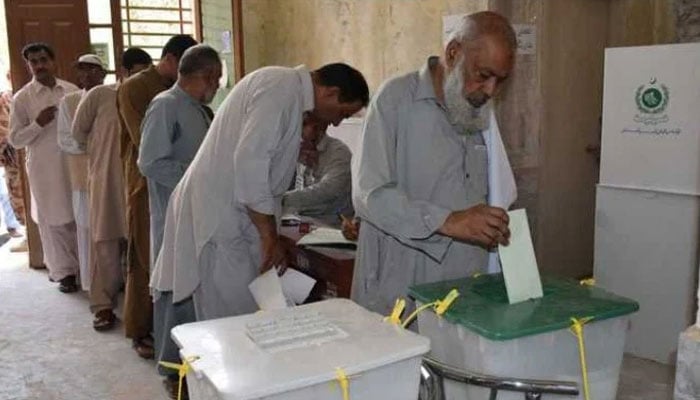Media to face legal action on violation of ECP’s coverage guidelines: Pemra
Pemra, PTA and other governmental bodies to "monitor" coverage given to political parties and candidates
As media organisations gear up for the coverage of the upcoming general elections slated for February 8, the Pakistan Electronic Media Regulation Authority (Pemra) Tuesday warned of legal action along with “accreditation withdrawal” for organisations and media persons over violation of the Election Commission of Pakistan’s (ECP) “code of conduct”.
As per the ECP’s guidelines, not only does the electoral body have the discretion to determine what constitutes a violation but can also initiate legal action against violators under Sections 29-A and 30 of Pemra Ordinance 2002 as amended by Pemra (Amendment) Act 2023.
To ensure that media organisations and personnel abide by the electoral body’s code of conduct, Pemra, the Pakistan Telecommunication Authority (PTA), the Press Information Department (PID), the Cyber Wing, and the Digital Media Wing of the Ministry of Information and Broadcasting (MolB), will monitor the coverage given to political parties and candidates for their election campaigns.
Pemra’s advisory comes as the media, like elsewhere in the world, has played a significant role in ensuring fair and transparent elections that are deemed acceptable by all stakeholders.
Therefore, the coverage executed by media organisations, and personnel is tantamount to building confidence in Pakistan’s fragile democratic system which has had a rather tumultuous journey filled with allegations of “rigged” elections — the 2018 and 2013 elections being the recent most instances.
In both of the aforementioned elections, there were rampant complaints that raised concerns over media coverage before, during, and after the polls.
However, the ECP, in its bid to prevent this in the 2024 elections, has prohibited — under Section 182 of the Elections Act 2017 — the media “from projecting election campaign of any candidate or political party during 48 hours ending at midnight following the conclusion of the poll for any election.”
The electoral body — after the EU expressed its inability to send a full-scale election observation mission — has also called on the Foreign Office to invite international observers to monitor the transparency of the upcoming general elections.
Apart from barring the media from running election campaigns of candidates and political parties at the cost of the national exchequer, the top electoral body will receive comprehensive reports from the PTA, PID, and other relevant departments provisioning the details of payments made by the political parties and candidates within 10 days after poll day.
The code of conduct emphasises special focus on the prevention of dissemination of content that is deemed prejudicial to the ideology, sovereignty, dignity, or security of Pakistan, public order, or the integrity and independence of the judiciary of Pakistan and other national institutions.
“Allegations and statements which may harm national solidarity or may create law and order situation from the issuance of election schedule till the notification of returned candidate shall be strictly avoided,” the ECP’s guidelines read.
In order to ensure fair and unbiased coverage during the polls, the electoral body’s code of conduct requires the media to seek verification and points of view of both sides in case of accusations, etc.
Additionally, the media has been instructed to “avoid” giving coverage to allegations and statements that pose a threat to national security and law and order situation.
On the issue of coverage on the poll day (February 8), only “accredited media persons” will be allowed to enter polling stations. However, neither media persons will be allowed to film the vote-counting process, nor air/publish any unofficial result of a polling until one hour has passed after the close of the poll.
Additionally, the electoral body’s guidelines allow broadcasters to announce unofficial results only one hour after the polling has culminated, and that too with the relevant disclaimer.
-
Security forces gun down 30 terrorists in multiple IBOs in KP: ISPR
-
MQM-P calls for new province in Sindh
-
US report validates Pakistan military edge over India: PM
-
Banned TTP poses serious threat to Pakistan security: UNSC panel
-
CM Afridi clarifies remarks on by-poll after ECP requests army deployment
-
Dubai sees 3.2m Pakistani passengers in 2025 as airport sets new milestone
-
Security forces kill 23 Indian proxy terrorists in KP's Kurram
-
Pakistan to construct island to boost oil exploration: report












